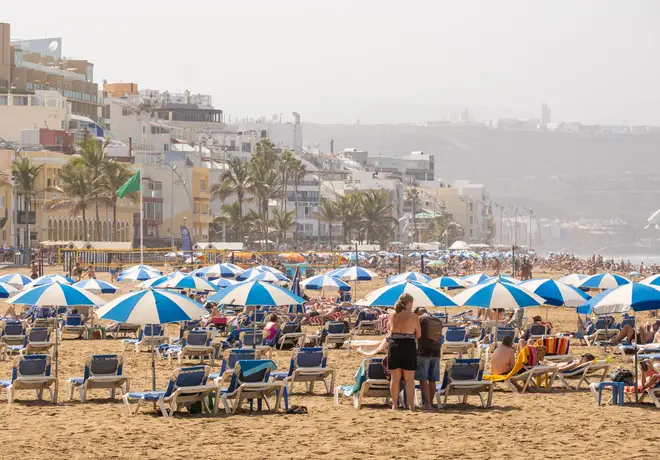
Shelagh Fogarty 1pm - 4pm
23 February 2024, 19:57

Brits planning to jet off to Spain on holiday this year will need to make sure they're prepared before they travel due to two new changes affecting non-EU citizens.
Under the changes, it means British holidaymakers will need to apply for online authorisation before they travel.
The schemes will impact non-EU citizens travelling to Spain as well as multiple other EU countries.
If holidaymakers don’t arrive prepared, they could risk being denied entry to the country.
The first change is the EU entry/exit system (EES), which is an automated system for registering travellers from the UK and other non-EU countries each time they cross an EU external border.
Under the first change, it means tourists must scan their passports at an automated self-service kiosk before crossing an EU external border.
This will replace the current system of manually stamping passports.
The new scanners will register the person’s name, type of travel document, biometric data, as well as the date and place of entry and exit.
The system will apply to entry at 25 EU countries, including Spain, Greece, France Germany, Italy and four non-EU countries, Norway, Iceland, Switzerland and Lichtenstein, according to the European Commission. It will also affect UK border check points.
While the second change under the schemes, the European Travel Information and Authorisation System (ETIAS,) will require travellers to get permission before entering EU countries, which can either be done online or via a mobile app.

This system is expected to commence in mid-2025. The European Union has recommended that when this comes into force, travellers get the permission before they book any time abroad.
Applications will be checked against EU information logs for borders and security. It is believed it will just take minutes to receive confirmation for most applicants.
But the European Commission has warned that some applicants may require additional checks, potentially delaying confirmation by up to 30 days.
Once permission has been granted, this will then last for three years or until a person’s passport expires - if this happens before the three years is up. After this it will need to be renewed.
The EITAS will cost too, Brits will need to fork out around £6-7 if they are aged between 18-70. It will be free for under 18s and over 70s.
Currently, Brits can only stay up to 90 days within a 180-day period in the Schengen area. This is regulated by border staff checking passport stamps.
Those looking to make longer trips within the EU will need to apply for visas.